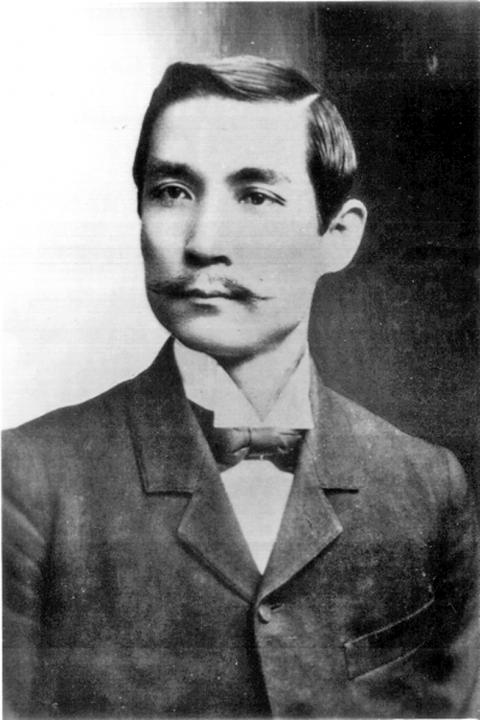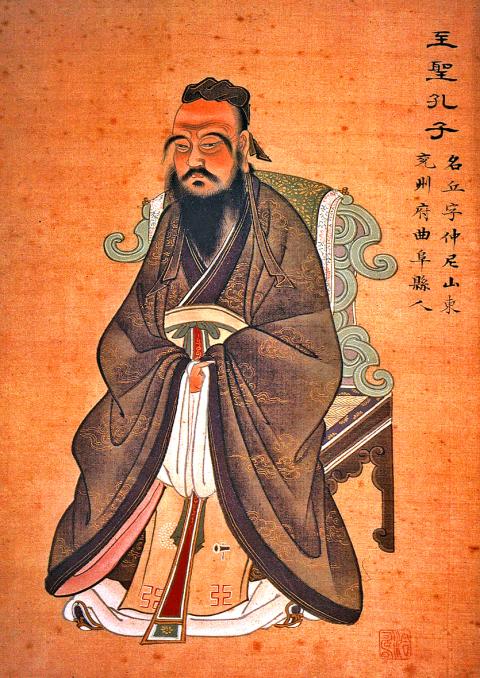Taiwan in Time: Sept. 28 to Oct. 4
Besides being Teachers’ Day, where not even teachers get the day off, Sept. 28 is notable in history because in 1900, anti-imperialist leader and Chinese Nationalist Party (KMT) cofounder Sun Yat-sen (孫逸仙) made the first of several visits to Taiwan.
Sun was in exile during that time after his failed uprising in 1895 against the Qing Dynasty, spending much of his time in Japan. By 1900, the anti-Western Boxer Rebellion was in full swing in China, and in response, an alliance of eight countries invaded China. Sun thought that the turmoil would be a second opportunity to overthrow the Qing.

Photo courtesy of Wikimedia Commons
After failing to enter China from Hong Kong, he returned to Japan and headed towards Taiwan, which was then under Japanese rule, to plan what would be called the Huizhou Uprising (惠州起義).
Sources say the main purpose of visiting Taiwan was to obtain Japanese governmental support for his planned uprising. Then Taiwan governor-general Kodama Gentaro pledged to help Sun’s cause.
A command center was set up in Taipei’s Shinkicho (today’s Ximending) on Oct. 8. The revolutionaries started from Huizhou, capturing coastal towns while waiting for Sun to bring weapons and reinforcements from Taiwan, at which point they would turn towards Xiamen (廈門), in today’s Fujian Province, together.

Photo courtesy of Wikimedia Commons
The problem was that on Oct. 19, after a power shift in the Japanese Cabinet, the country changed its Chinese policy and forbade the colonial Taiwan Governor-General’s Office from offering the revolutionaries any military help, including troops and weapons. The Governor-General was also forbidden any contact with the revolutionaries.
Sun’s plans were dashed because of this development, and the revolution was aborted. He returned to Japan in November. This would be his longest stay in Taiwan.
The Qing Dynasty was no more by the next time Sun visited Taiwan in 1913, but he was still fighting, this time trying to overthrow then-president Yuan Shikai (袁世凱), who wasn’t getting along with the KMT. Yuan eventually declared himself emperor.
Sun’s forces lost the battle and he went into exile again, fleeing China to Japan via Taiwan, this time staying only about a week.
Interestingly, Sept. 28 is also the anniversary of the official formation of the Democratic Progressive Party. Formed in 1986, it is today Taiwan’s second largest political party.
CELEBRATING CONFUCIUS
Why is tomorrow Teachers’ Day? Like its globally unique Father’s day, Taiwan is the only country in the world that observes it on Sept. 28. This is nothing odd, as the majority of countries in the world do their own thing to honor their teachers, often on the birthday of a great educator. Only a handful of countries observe World Teachers’ Day on Oct. 5.
In Taiwan’s case, it’s the birthday of Confucius, the 6th century BC philosopher, politician and teacher. His ideas have greatly influenced Chinese society as well as other parts of Asia, and is revered in temples. One of his most famous sayings promotes universal education: “Teach everyone regardless of their background and also teach them according to their abilities.” Confucius even has an asteroid named after him.
Like several other Taiwanese holidays, Teacher’s day traces back to the days when the KMT ruled China. The education ministry in the 1930s originally designated Aug. 27, which was then believed to be Confucius’ birthday, as a day to commemorate his educational ideals and celebrate teachers nationwide. Later, experts determined that Confucius’ actual birthday was Sept. 28 and the day was changed in 1952, after the KMT had already fled to Taiwan.
It was a national holiday until 1990, when it was eliminated in a restructuring of the country’s day-off schedule. While people still have to work, the day is still observed with ceremonies in Confucian Temples around the country. Local education institutes of all levels also take this time to hand out teaching awards for both longevity and excellence.
Taiwan in Time, a column about Taiwan’s history that is published every Sunday, spotlights important or interesting events around the nation that have anniversaries this week.

That US assistance was a model for Taiwan’s spectacular development success was early recognized by policymakers and analysts. In a report to the US Congress for the fiscal year 1962, former President John F. Kennedy noted Taiwan’s “rapid economic growth,” was “producing a substantial net gain in living.” Kennedy had a stake in Taiwan’s achievements and the US’ official development assistance (ODA) in general: In September 1961, his entreaty to make the 1960s a “decade of development,” and an accompanying proposal for dedicated legislation to this end, had been formalized by congressional passage of the Foreign Assistance Act. Two

March 31 to April 6 On May 13, 1950, National Taiwan University Hospital otolaryngologist Su You-peng (蘇友鵬) was summoned to the director’s office. He thought someone had complained about him practicing the violin at night, but when he entered the room, he knew something was terribly wrong. He saw several burly men who appeared to be government secret agents, and three other resident doctors: internist Hsu Chiang (許強), dermatologist Hu Pao-chen (胡寶珍) and ophthalmologist Hu Hsin-lin (胡鑫麟). They were handcuffed, herded onto two jeeps and taken to the Secrecy Bureau (保密局) for questioning. Su was still in his doctor’s robes at

Last week the Democratic Progressive Party (DPP) said that the budget cuts voted for by the China-aligned parties in the legislature, are intended to force the DPP to hike electricity rates. The public would then blame it for the rate hike. It’s fairly clear that the first part of that is correct. Slashing the budget of state-run Taiwan Power Co (Taipower, 台電) is a move intended to cause discontent with the DPP when electricity rates go up. Taipower’s debt, NT$422.9 billion (US$12.78 billion), is one of the numerous permanent crises created by the nation’s construction-industrial state and the developmentalist mentality it

Experts say that the devastating earthquake in Myanmar on Friday was likely the strongest to hit the country in decades, with disaster modeling suggesting thousands could be dead. Automatic assessments from the US Geological Survey (USGS) said the shallow 7.7-magnitude quake northwest of the central Myanmar city of Sagaing triggered a red alert for shaking-related fatalities and economic losses. “High casualties and extensive damage are probable and the disaster is likely widespread,” it said, locating the epicentre near the central Myanmar city of Mandalay, home to more than a million people. Myanmar’s ruling junta said on Saturday morning that the number killed had